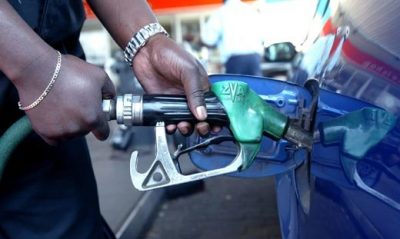Subsidy removal in a fix as refineries miss repair deadline
The March completion deadline for the initial stage of repair work on the Port Harcourt, Warri and Kaduna refineries has been missed, and continued delay in delivering the projects will add a wrinkle to the plans to remove petrol subsidies.
Labour unions under the aegis of the Nigeria Labour Congress and the Trade Union Congress use the moribund refineries as a foil to galvanise workers against supporting government plans to deregulate the downstream sector.
Though the current subsidy regime fuels corruption, promotes smuggling of refined products across porous borders and provides no incentive to fix the refineries, the unions, among whose rank includes the refinery workers earning salaries for non-performing refineries, resist any attempt to deregulate the downstream sector.
In March 2021, the Federal Executive Council (FEC) approved $1.5 billion (N600 billion) for rehabilitating the Port Harcourt refinery. The Federal Government said the rehabilitation contract was awarded to Tecnimont SPA, an Italian company, and will be rehabilitated in about 44 months.
The funding of the repairs will be from many components, including the Nigerian National Petroleum Company (NNPCL), internally generated revenue, budgetary provisions and Afreximbank.
Providing an update on the project in January this year, Timipre Sylva, then minister of state for petroleum resources, said the rehabilitation of the 60,000-barrels-per-day Port Harcourt refinery was being completed and would be started by the first quarter of 2023. It did not go as planned.
The Warri Refinery faces the same situation. In August 2021, FEC approved $1.48 billion for rehabilitating the Warri and Kaduna refineries. $897 million would be spent to repair the Warri refinery, while the Kaduna refinery will gulp $586 million.
The contracts were awarded to Messers Saipem SPA and Saipem Contracting Limited and will be rehabilitated in three phases of 21, 23 and 33 months.
President Muhammadu Buhari said last year that the Warri refinery rehabilitation works, when completed, would deliver fuel production before the first half of 2023, but this has not happened.
The NNPCL also signed a $740.7 million maintenance service contract last two months with Daewoo Engineering & Construction Nigeria Ltd for a quick-fix repair of the Kaduna Refining & Petrochemical Company (KRPC) Limited.
The state oil company said the repair is expected to restore the refinery to at least 60 percent of its nameplate capacity by the fourth quarter of 2024.
Sylva, who was involved in the negotiations for the repair of these refineries, has left the job of minister of state for petroleum to contest for the governorship election in Bayelsa State.
Analysts say the refineries have been allowed to rot due poor leadership and corruption.
“Poor leadership, corruption and political will have brought us to the level where we keep importing oil products. Nigeria is meant to be a major petrochemical hub supplying products like Jet A fuel, petrol and diesel to the whole of West Africa and other countries,” Etulan Adu, an oil and gas production engineer, said.
Last week, the Independent Petroleum Marketers Association of Nigeria (IPMAN) faulted the minister of state for petroleum over his assurance on completing the Port Harcourt refinery.
Joseph Obele, IPMAN chairman for River State, said in a statement that the oil minister promised Nigerians that the Port Harcourt refinery would commence operations by December 2022, but he failed. Secondly, he promised the first quarter of 2023, and failed again.
“Now he is saying the second quarter of 2023; he will definitely fail. They are not committed to seeing the refinery functional. They are comfortable importing from the international market because they have shares in those foreign refineries,” Obele said.
“It will take a corrupt-free government to make our refineries functional, then the consistent fuel scarcity will be a thing of the past, and Nigerians will buy for fuel less than N100 per litre.”
Meanwhile, the subsidy regime is expected to end in June as the current government did not make budgetary provision for further payments. This puts the incoming Bola Tinubu government in a difficult position.
Some experts say that if the refineries come onstream, it will significantly reduce Nigeria’s reliance on imported petroleum products but will ultimately have limited impact on prices without subsidies.
BusinessDay analysis of the current pricing template shows that 86 percent of the cost component of refined petrol is the cost of feedstock or crude. This leaves savings on freight charges and port costs. However, other costs would be added in terms of distribution.
“If the refineries come on stream, importation and other associated costs would be eliminated but refineries would still be buying crude oil from oil companies at international prices,” said Adu.
The 650,000-bpd capacity Dangote Refinery is yet to come onstream, with the completion date uncertain.
“Dangote refinery will still buy crude oil from international oil companies at an international price. However, import duties will be off; so the price should be reasonable. But recall that once the subsidy is gradually reduced, we will feel the impact of the extra price we must pay as citizens,” said Ndubuisi Okereke, senior lecturer in the Petroleum Engineering Department at the Federal University of Technology, Owerri. (BusinessDay)


